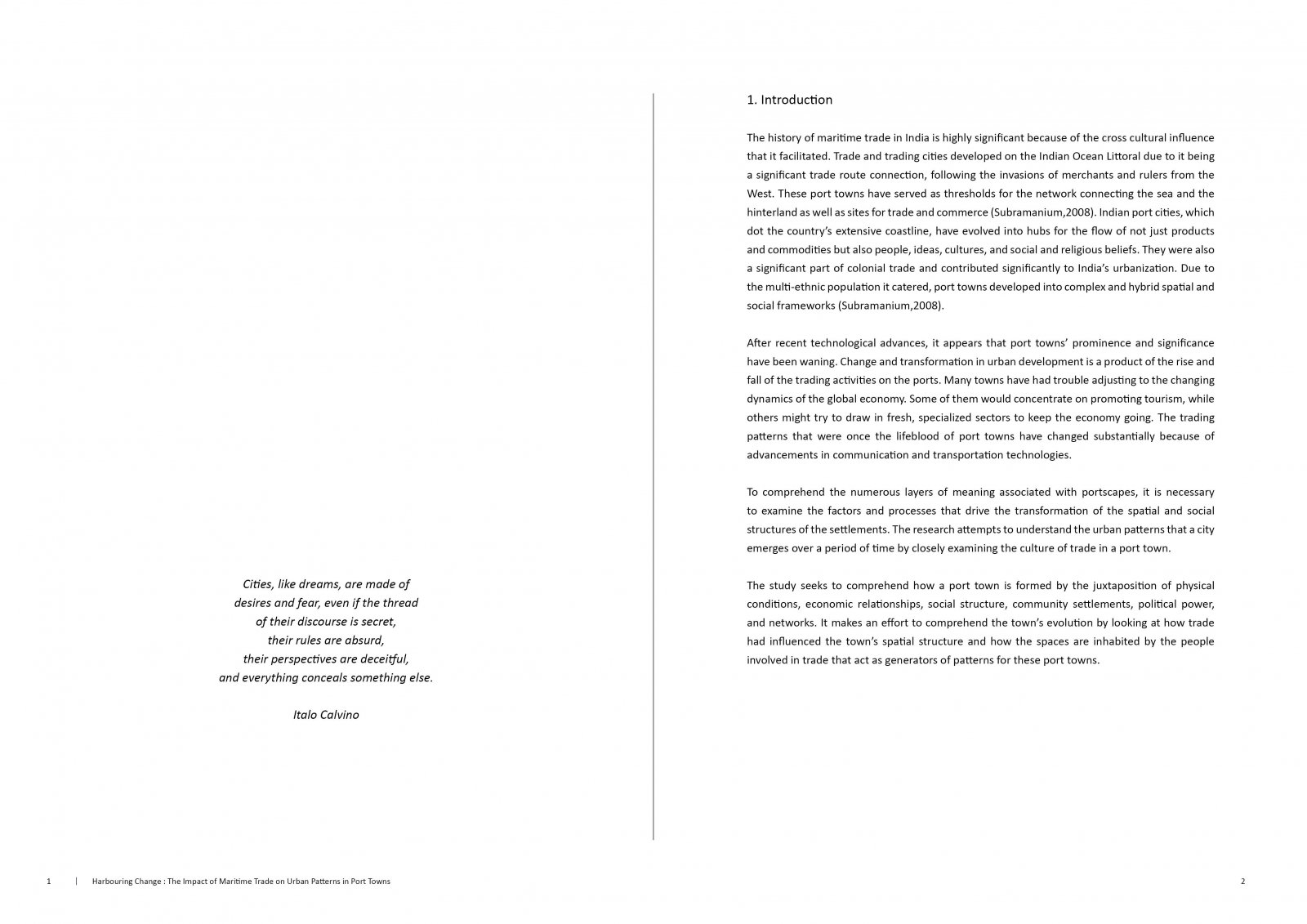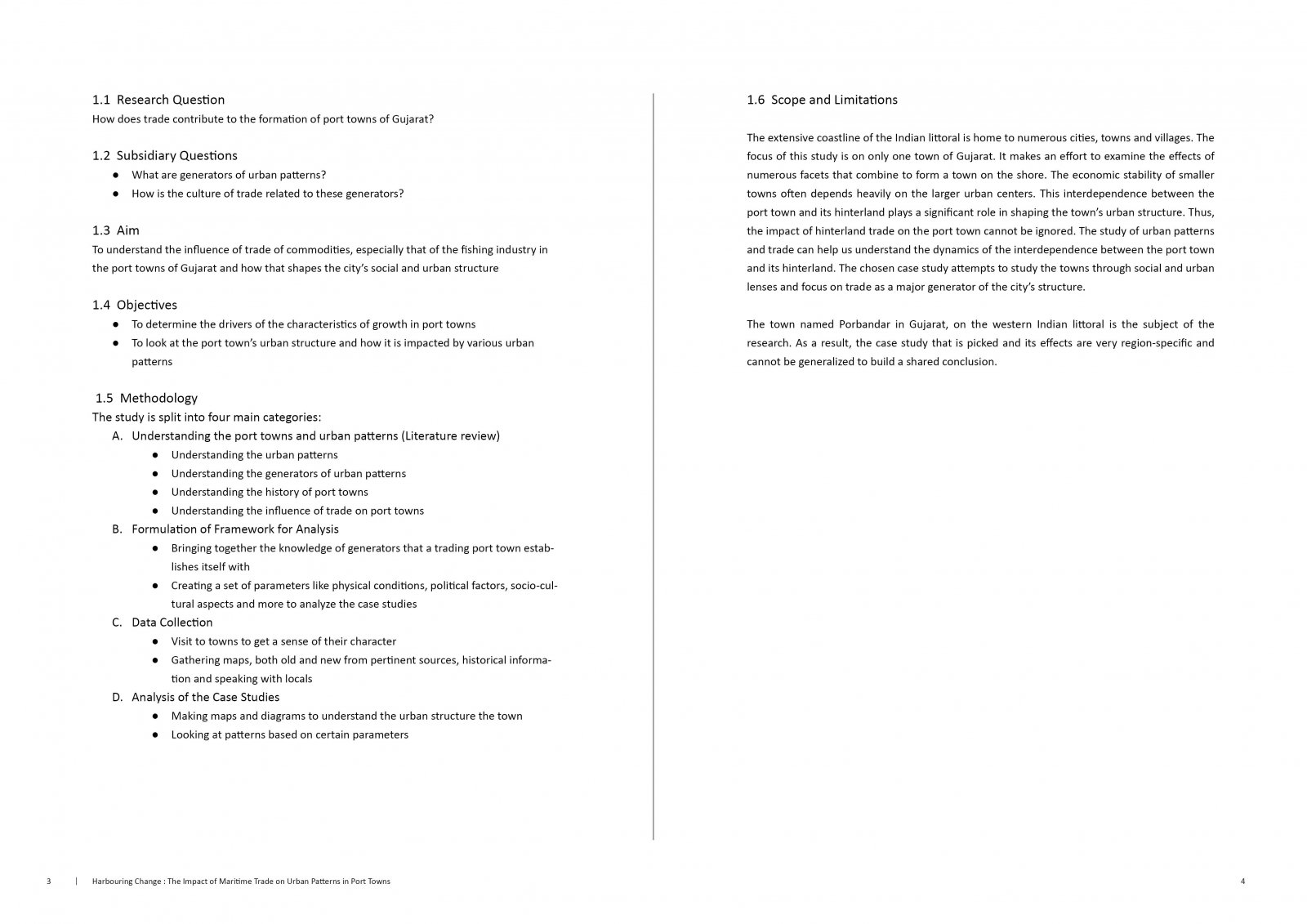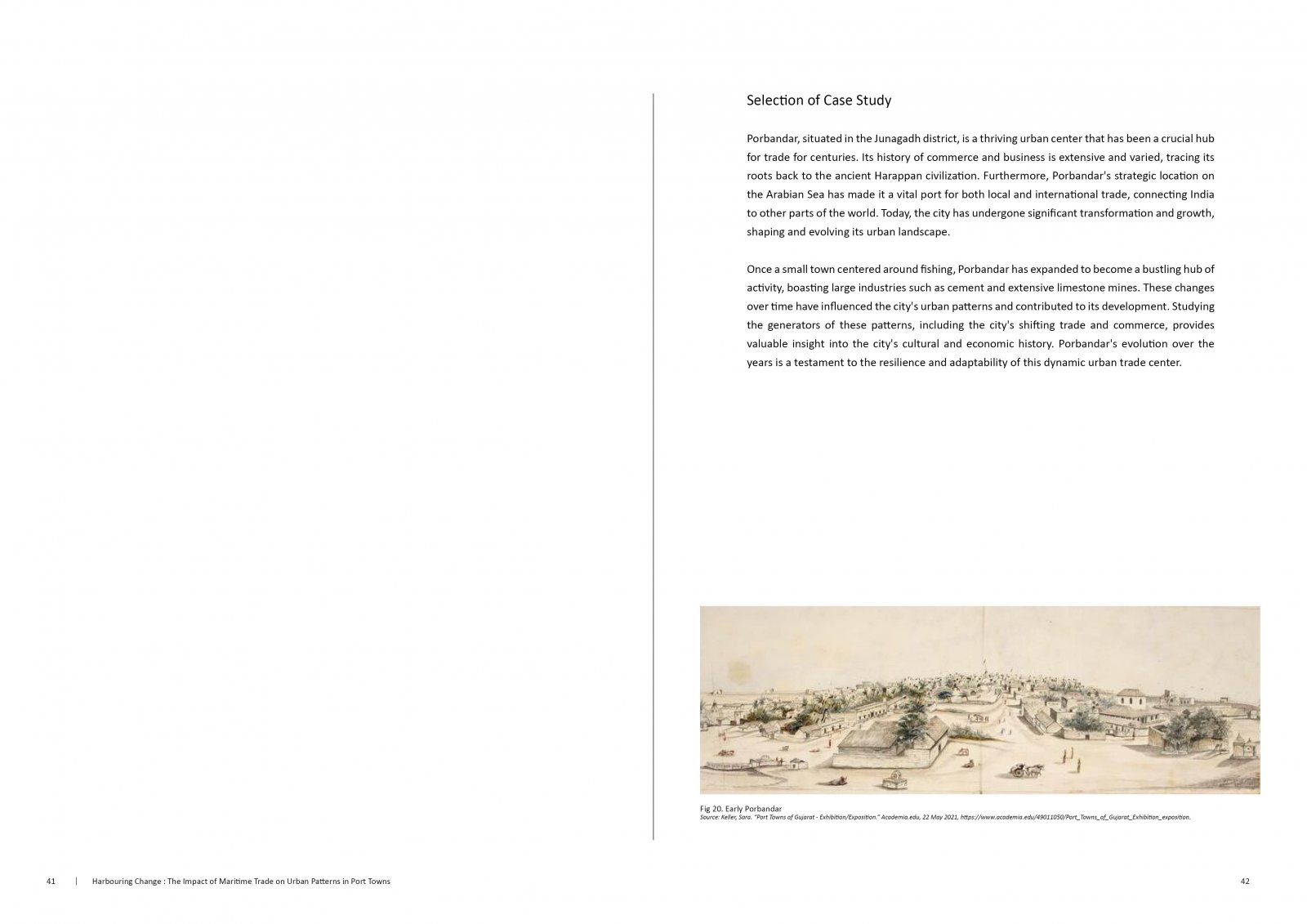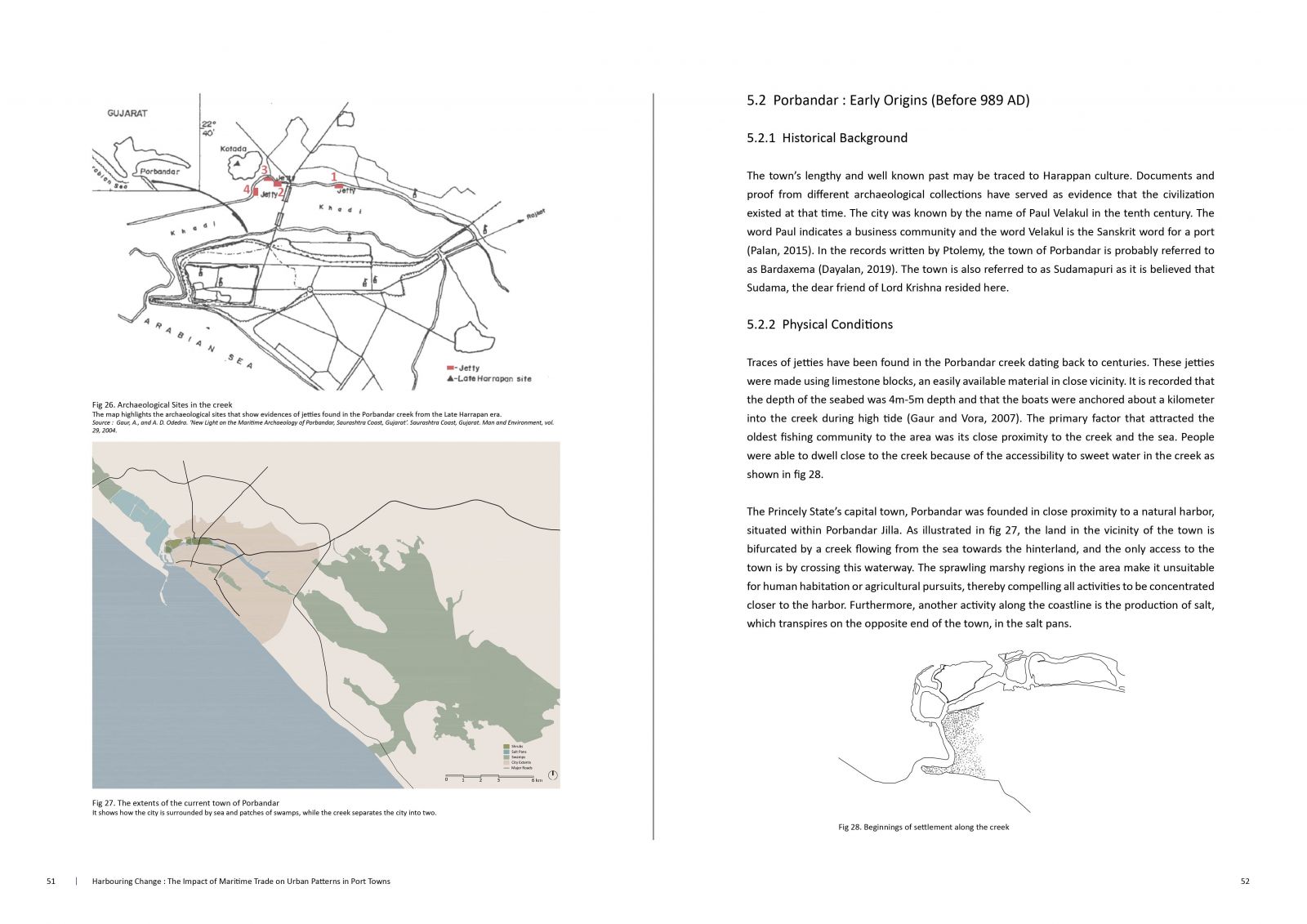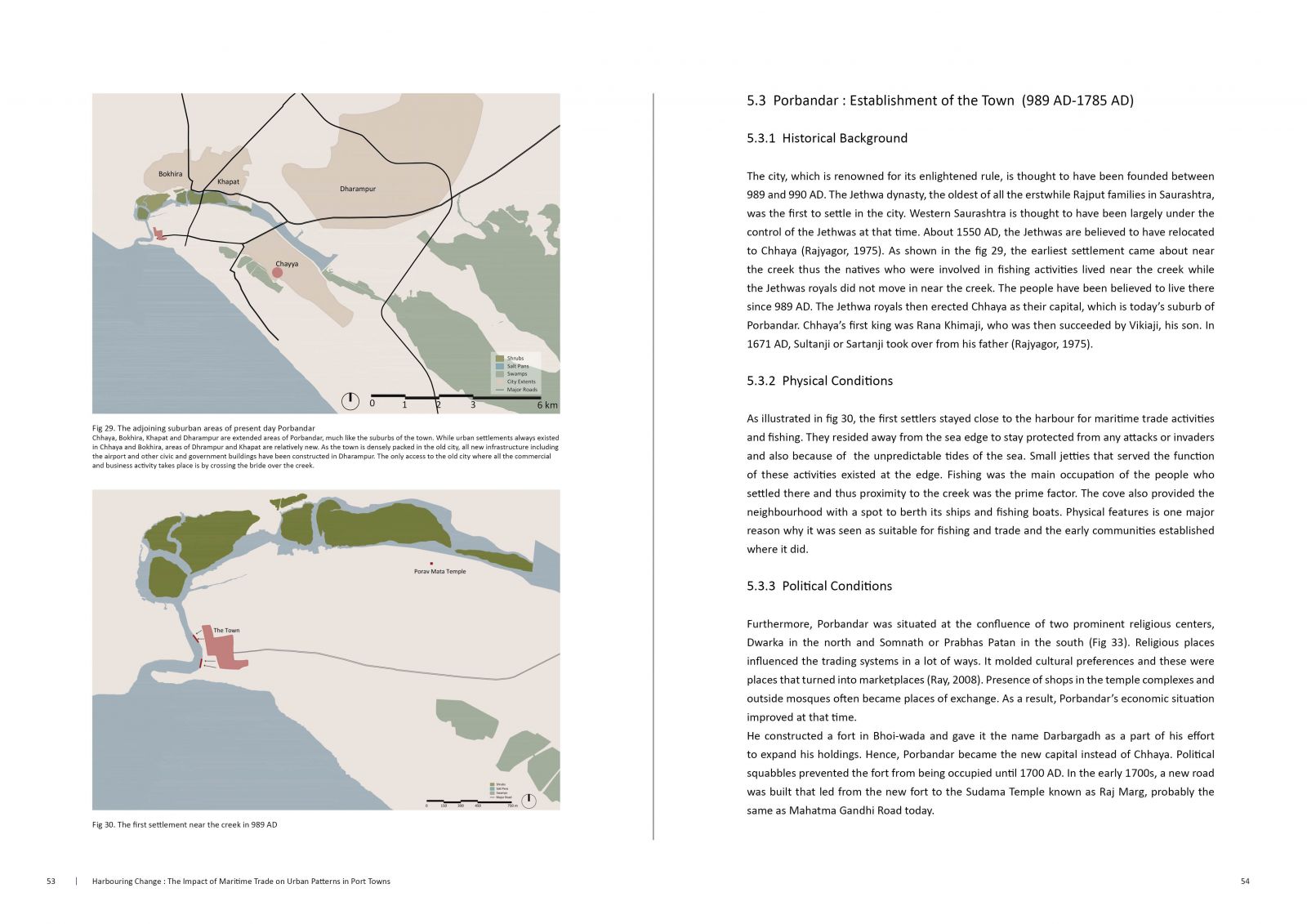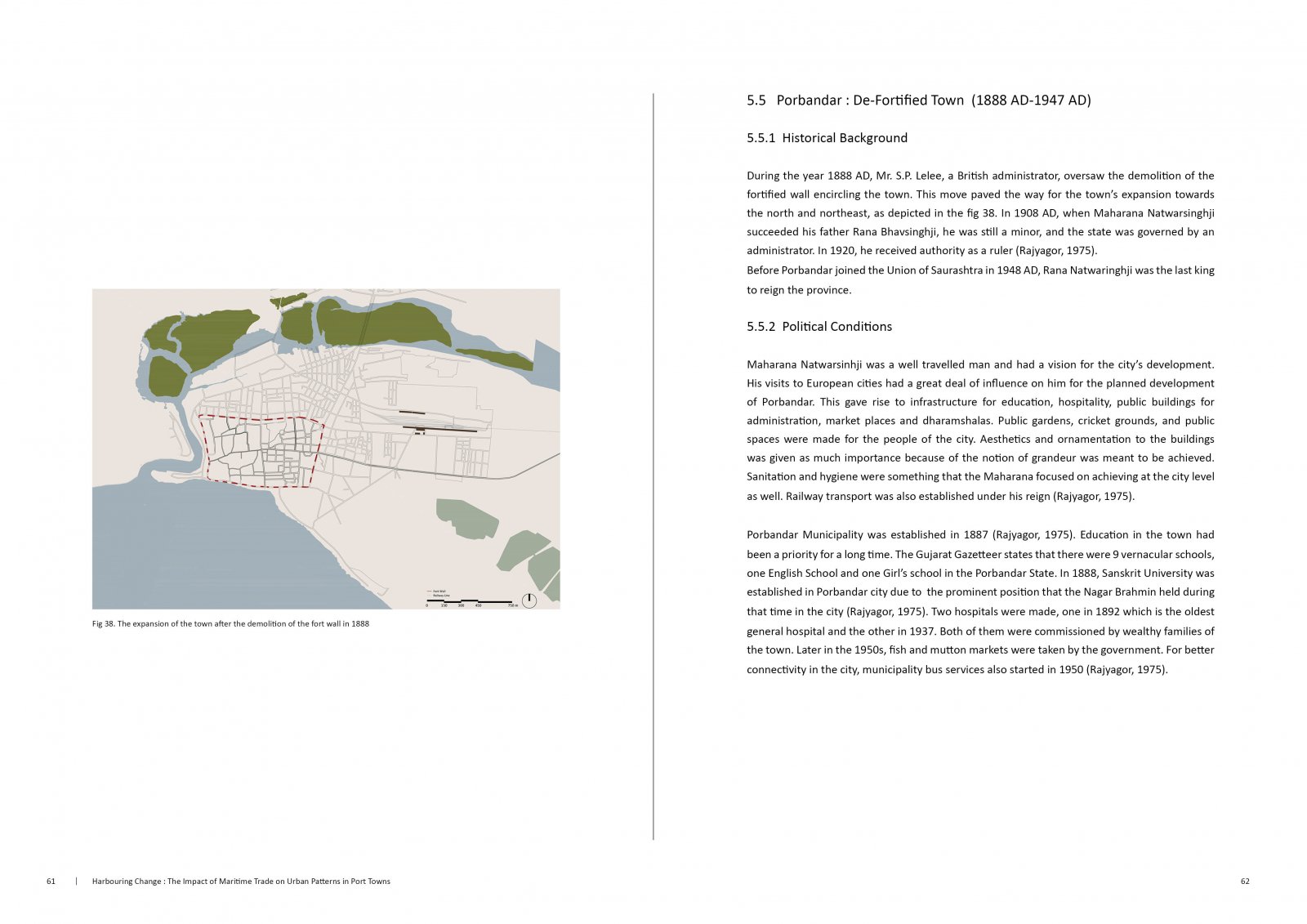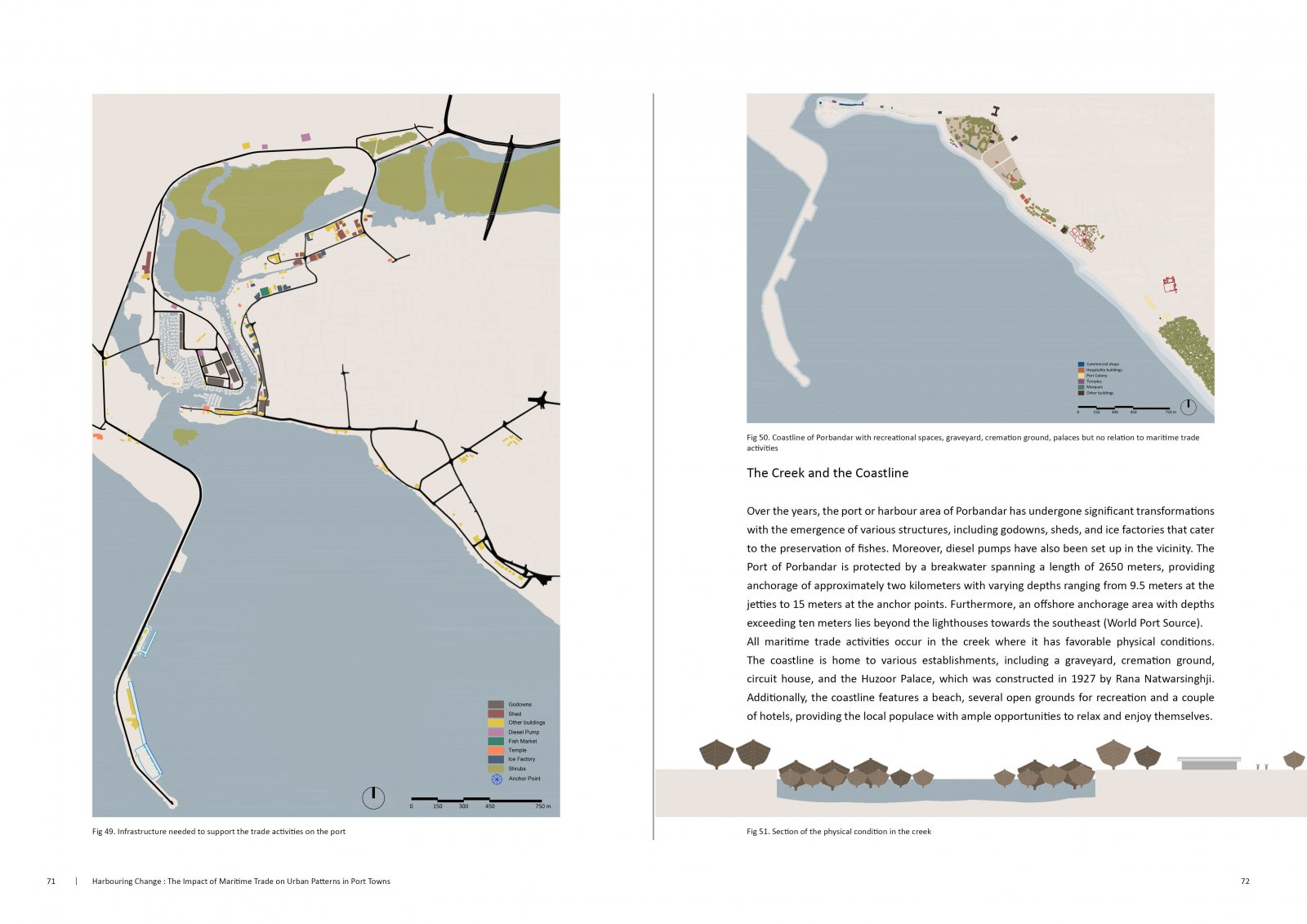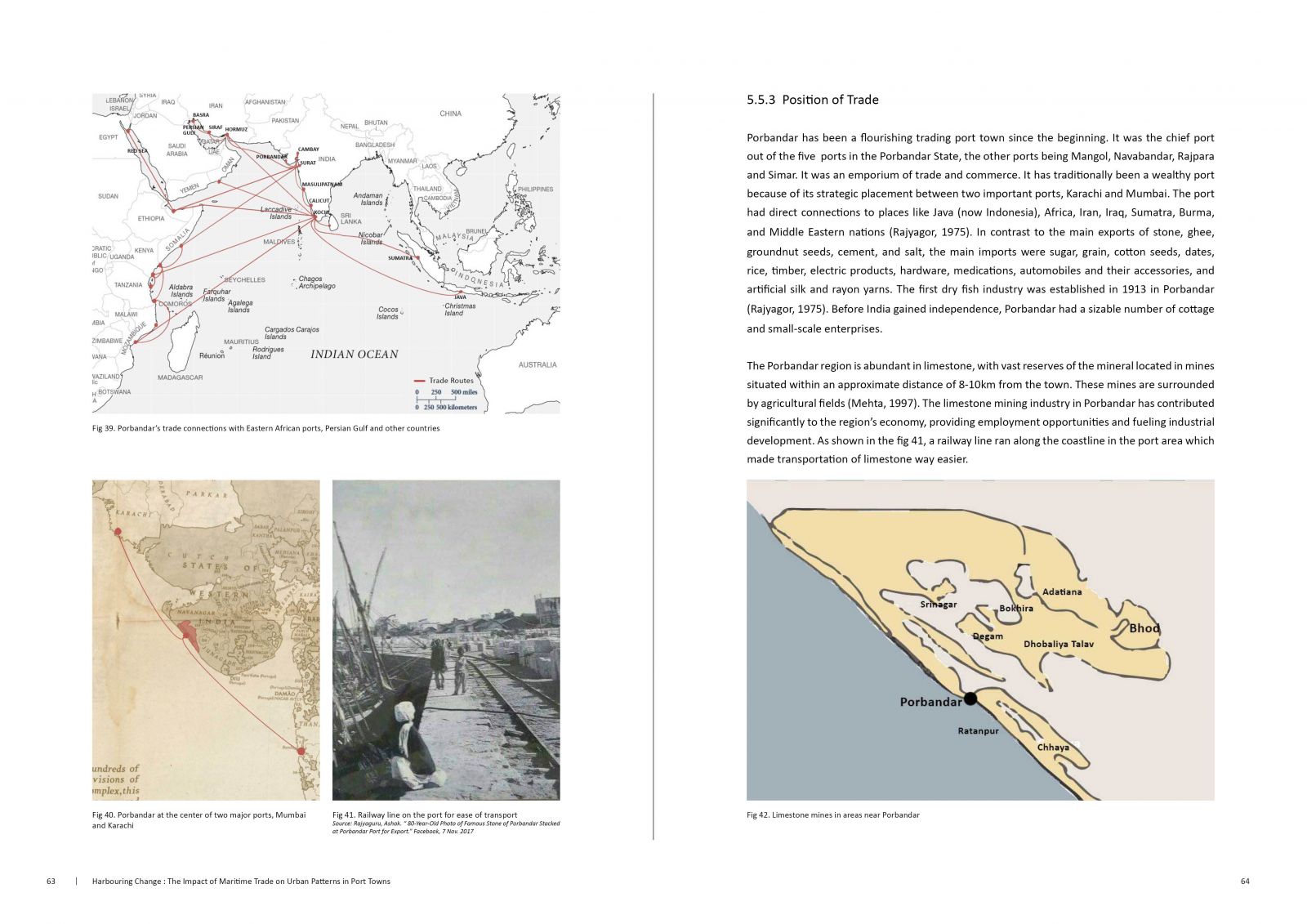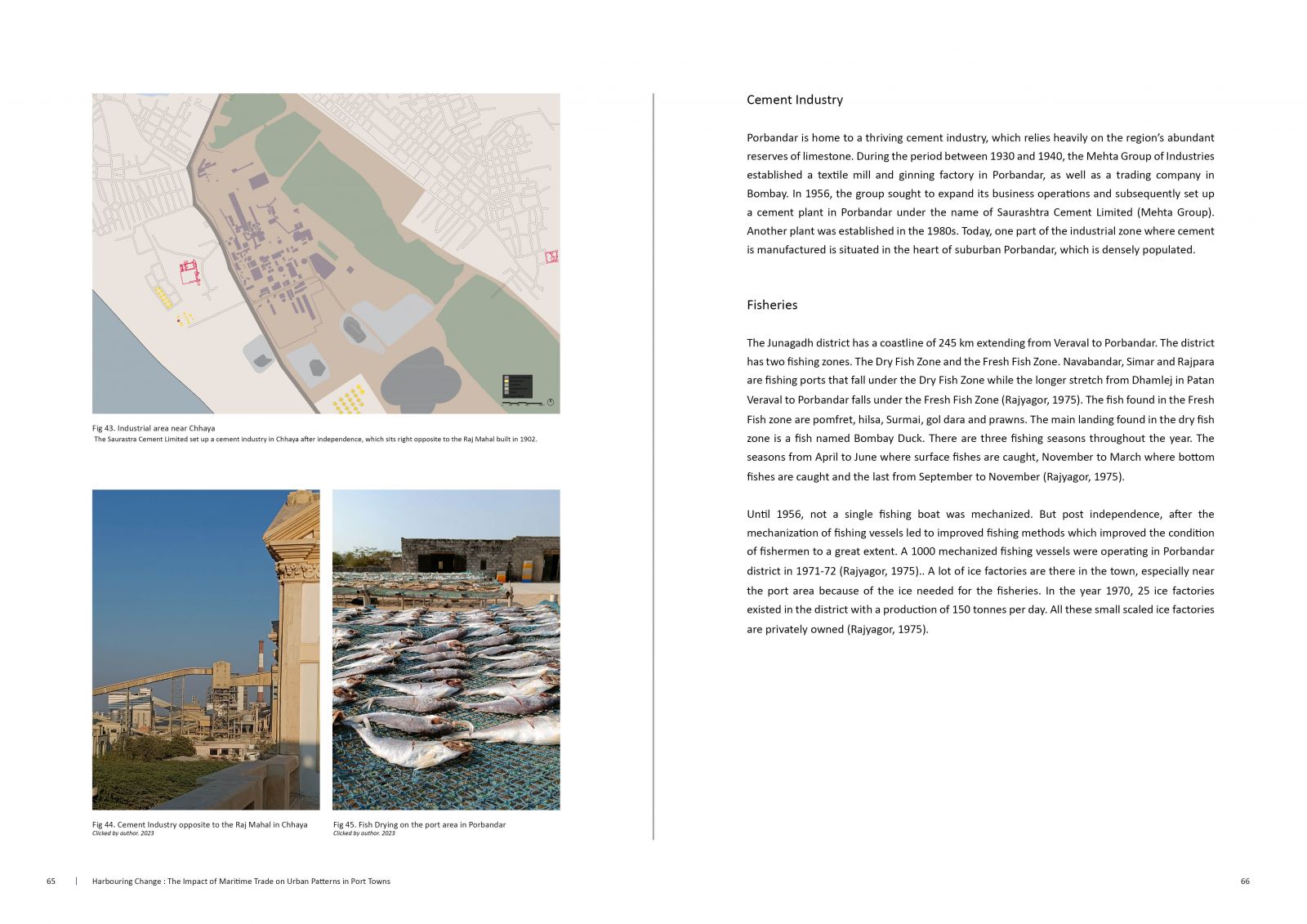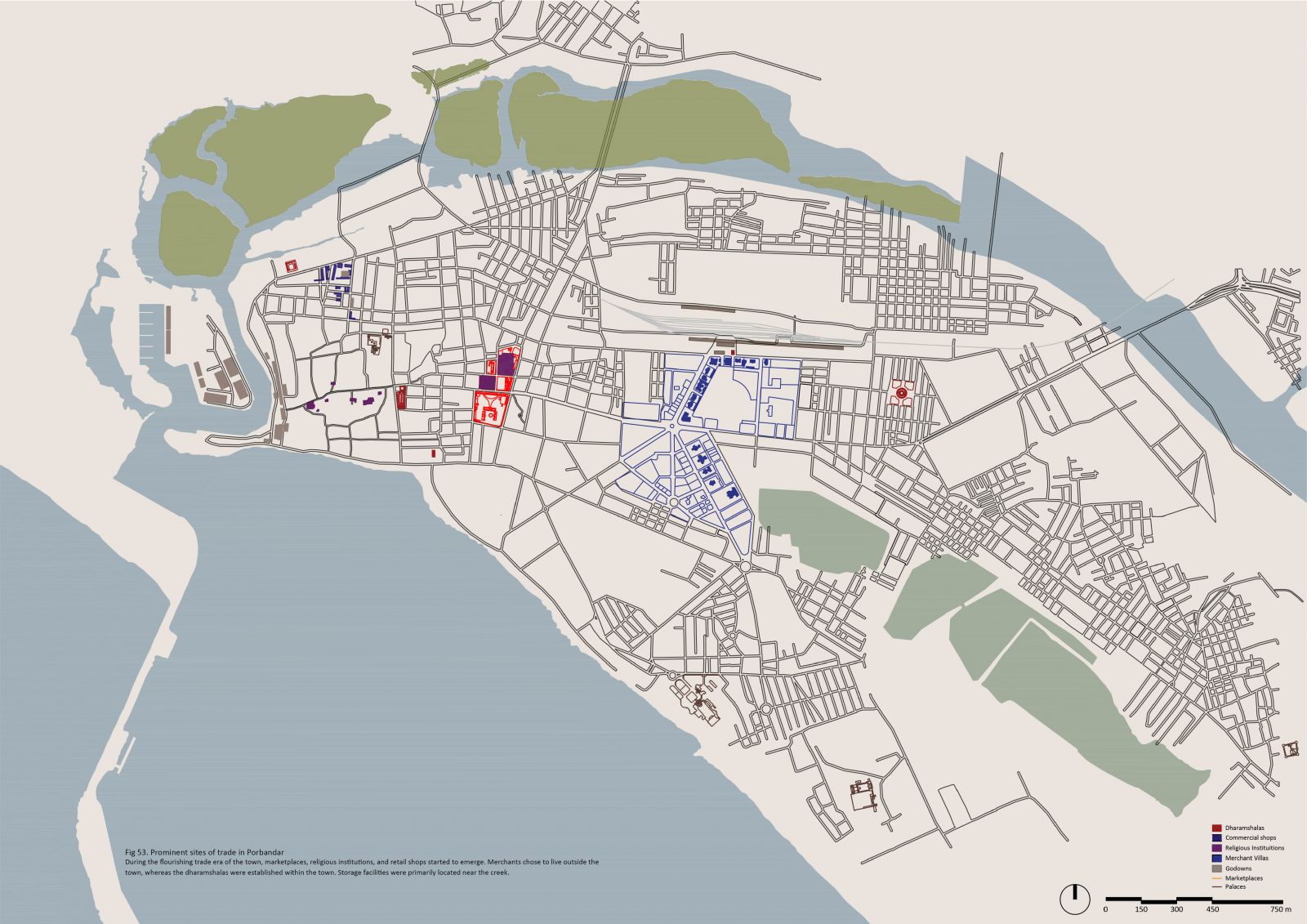Your browser is out-of-date!
For a richer surfing experience on our website, please update your browser. Update my browser now!
For a richer surfing experience on our website, please update your browser. Update my browser now!
Port towns played a crucial role as gateways linking the sea and the hinterland, serving as both centers of commerce and crucial nodes in trade networks. Throughout history, the rise and fall of trading cities have acted as agents of change and transformation, catalyzing the evolution of societies and economies. This research explores the urban patterns of port towns in Gujarat, India, with a focus on the culture of trade as the force that drove how the town was shaped. Formation of trading cities on the coast has been because of various generators that are very different from the inlands. Porbandar, a coastal town in Gujarat has a rich history of fishing and maritime trade. The thesis delves into the evolution of Porbandar over time, from their historical roots to their current state, highlighting the impact of changing trade patterns, economic forces, and cultural influences. Through a detailed analysis of the town, the research examines the ways in which it's historical, economic, cultural and social dynamics have influenced the physical and spatial organization of their urban fabric. The research focuses on exploring the relationship between trade, urbanism, and architecture in trading cities, with a focus on how trade has influenced the emergence of the urban patterns.
